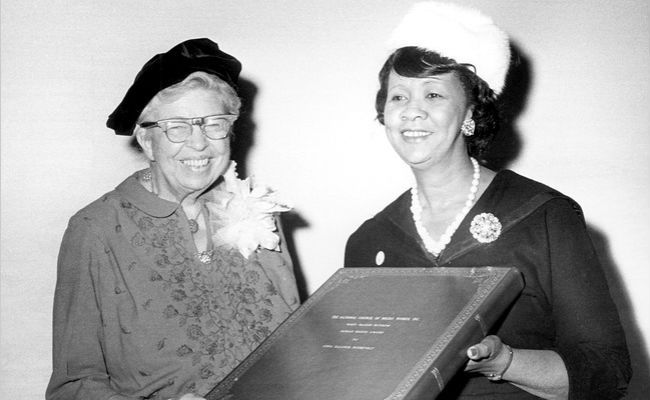Women are often the catalysts in the advocacy of individuals that are continuously marginalized by society. Being a political representation for confined groups also meant being color blind to whom would benefit toward future legislation for equality. The women leaders for change didn’t cower in the presence of men; they looked them in the eye and handled business accordingly. This month’s Natural Who Made History is Dorothy Irene Height.
Using rejection to promote equality
Dorothy Height’s path to becoming a prominent social activist began with unchangeable hardship of being a African American woman. With her initial admittance to Barnard College in 1929, Ms. Height was rejected being told that “the quota for black students had been fulfilled.” Instead Dorothy attended New York University where she earned her Bachelor’s degree shortly after earning her Master’s degree in educational psychology. Prior to the start of her career, she focused her post graduate work at Columbia University concentrating in social work.
At the tender age of 25 years old, Dorothy became a member of the National Council of Negro Women as well as working as a case-worker full time for the New York Department of Welfare.
Her focus on equality and educational benefits did not limit its scope to a specific racial group; her fight for African American women’s equality included women as a whole. She pushed for women to become politically active, increase voter awareness, and broaden available job opportunities.
Bringing awareness through conviction
In 1944, Height joined the national staff of the YWCA. To further promote her intentions for women’s social and political leadership and educational reform, Dorothy used the helping hands of her sorority, Delta Sigma Theta Sorority Incorporated, to help advocate and expand potential programs. Through her active organizational participation and affiliations, Dorothy and her diverse sisterhood were able to be advocate for various individuals on many levels and economic statuses.
Unbeknownst to many people, Dorothy Height played a highly influential role of the Civil Rights Movement both organizationally and politically. During the peak of the 1960s Civil Rights Movement, Wednesdays in Mississippi were arranged to bring together black and white women from the North and South for open conversation on their issues. Miss Height carried herself with so much poise and conviction that American leaders were always willing to hear her advice and act upon it. During the intense debates of school separations, Height spoke with President Dwight D. Eisenhower to push for immediate national desegregation of the school system citing that it would make for a beneficial learning environment for future generations aside from its unconstitutional issues. Dorothy spoke with President Lyndon B. Johnson in regards to allowing African American women to actively participate in positions with the national government.
Dorothy Irene Height not only left behind a legacy of feminist strength and influence in the world of social activism.
She is highly recognized for her extravagant hat collection she attained throughout her lifetime. Her hard work, perseverance, and determination to make a change in society continues to inspire many young activist to be the change they want to see. And this month Ms. Height, we salute you.


